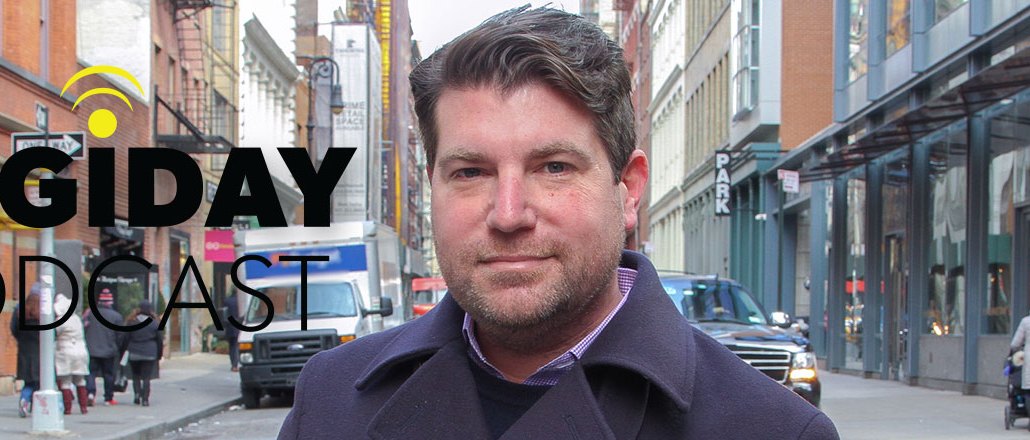Secure your place at the Digiday Media Buying Summit in Nashville, March 2-4

Subscribe: iTunes | RSS |
Women’s lifestyle publication PopSugar is nearing a decade old. In that time, founder Brian Sugar has seen the ebb and flow of digital media. One early bet he’s glad he made: Don’t rely on display advertising.
“Coming from e-commerce, we didn’t spend money in display,” said Sugar, a former J. Crew executive, on this week’s Digiday Podcast. “We spent money in performance marketing. I knew about affiliate marketing becoming a very large component of online ad budgets.”
PopSugar instead built a diversified media business that, while it does sell display advertising and native programs, makes money from affiliate fees, a subscription box,and, critically, a shopping search engine, ShopStyle.
“I knew that display advertising was not going to be ultimately the thing because the incentives are not aligned between the consumer and the advertiser,” he said. “If they were more closely aligned, we’d have something better. The advertiser wants to stop you from reading the content and you want to read the content.”
Below are some highlights.
Mobile banner ads are doomed.
PopSugar sees 60 percent of its traffic to mobile. For Shopstyle, that results in two-thirds lower conversion rates because of poor checkout experiences. For PopSugar, the transition is not as challenging but it’s still not great. Display advertising simply doesn’t work nearly as well as desktop, Sugar said. That’s a problem.
“By the end of 2017 there will be no display banner ads on any PopSugar site,” he said. “It will make the page load way faster. Nobody clicks on them anyway.
So PopSugar isn’t interested in programmatic
Sugar is focused on managing the shift from desktop to mobile. That means putting more emphasis on native advertising. But programmatic isn’t of interest.
“How does that manifest in mobile?” he said. “Programmatic’s awesome if you’re really trying to optimize your desktop business. At this point in time, our desktop business is great. I haven’t seen a mobile programmatic product that’s like ‘oh clearly let’s use that.’”
Ad blocking is a symptom of fed-up consumers.
Some dismiss ad blocking as an overhyped trend or simply a cottage industry of nefarious opportunists. But Sugar believes that younger consumers in particular are fed up with a bad bargain of free content with a horrible experience.
“Advertisers are waking up to not wanting to be the guy that angers you trying to close the overlay box,” he said.
E-commerce and content can work together.
On the surface, PopSugar and Shopstyle don’t have a lot in common. The former is content site, the latter is a fashion search engine. But for advertisers, they solve different problems. PopSugar can do brand advertising while Shopstyle can focus on delivering buyers.
“We sell the entire funnel,” Sugar said. “We sell discovery with PopSugar, and then we can sell them actionable things on Shopstyle. When we go as a business to a retailer, that’s where the synergies are.”
But most content sites won’t make much from commerce.
There’s a vogue for adding “commerce” to media businesses, from Gawker to Vox. But the volume in content environments will always be light, Sugar said, because the intent simply isn’t there compared to a search engine.
“It will always be an add-on,” he said.
More in Media

Media Briefing: Turning scraped content into paid assets — Amazon and Microsoft build AI marketplaces
Amazon plans an AI content marketplace to join Microsoft’s efforts and pay publishers — but it relies on AI com stop scraping for free.

Overheard at the Digiday AI Marketing Strategies event
Marketers, brands, and tech companies chat in-person at Digiday’s AI Marketing Strategies event about internal friction, how best to use AI tools, and more.

Digiday+ Research: Dow Jones, Business Insider and other publishers on AI-driven search
This report explores how publishers are navigating search as AI reshapes how people access information and how publishers monetize content.





